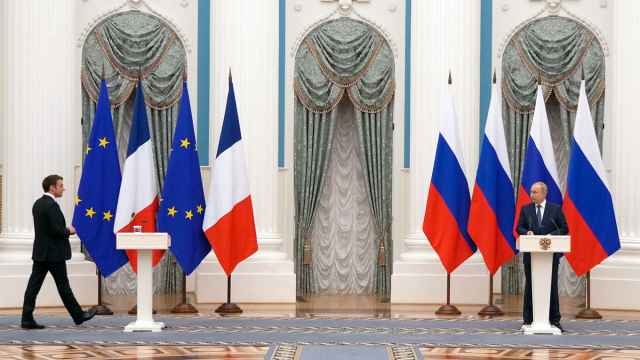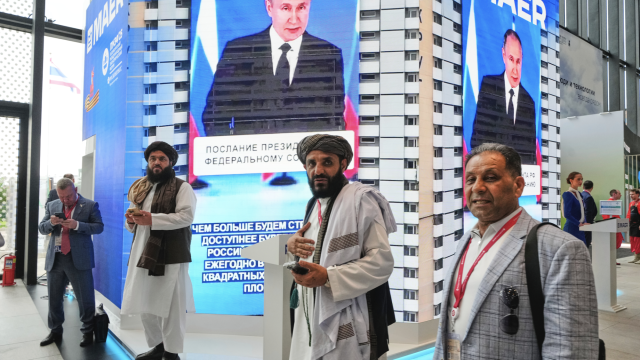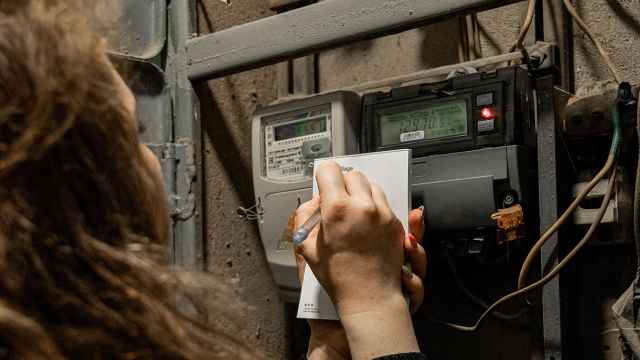A bank in the republic of Udmurtia lost 98.68 percent of its clients' money last month, but the lender is asking clients to deposit more funds so it can cover the losses.
Udmurtinveststroibank's "Bazovy" investment fund was overseeing 112.6 million rubles ($3.65 million), but its assets plummeted to 1.3 million rubles by Aug. 29, according to information on the bank's web site.
On Aug. 20, "a loss equivalent to 98.68 percent of the fund's value was recorded," the statement said, without elaborating.
That tops the losses suffered by clients of Uniastrum Bank's investment funds, which posted declines of 80 percent to 90 percent in fall 2008. "Even 90 percent in one day is baffling, but this ..." said Garegin Tosunyan, president of the Association of Russian Banks.
"I had hoped that the scandals with bank-managed funds was over with Uniastrum, but here we go again," said Sergei Matyushin, deputy head of Zenit bank's investment department.
Udmurtinveststroibank spokeswoman Yulia Lebedeva had no further comment on the losses.
The Bazovy fund's investment policy allows managers to use virtually any instruments, with limits placed on investments in promissory notes (no more than 70 percent of assets) and bank deposits (no more than 90 percent). The fund also cannot hold more than 70 percent of its funds in shares from one industry.
Shares in the Bazovy fund were advertised on the now-defunct web site of the firm Aktiv-Invest. On a number of sites, the fund was promoted as a "multilevel marketing" instrument, under which the agent would receive part of the revenue from clients they recruited.
According to one of those sites, the Bazovy fund returned 56.5 percent from April 19, 2009, through Feb. 28, 2010.
The president of Aktiv-Invest Group is Alexander Brylyakov, a shareholder and member of the board of directors at Udmurtinveststroibank. In an interview to E1.ru, he called the Bazovy fund the group's primary investment asset.
The Bazovy fund managers, meanwhile, believe that they can return investors' losses in three to five years, and possibly as little as two, Udmurtinveststroibank's statement said.
The recovery will be achieved "with the help of a complex of trading strategies, which over the course of half a year have provided a stable average return of 10 percent to 20 percent per month," the bank said. "The potential return from this strategic complex is much higher — as much as 50 percent."
To take advantage of this opportunity, the bank proposed that investors "accelerate the restoration of their shares by making additional cash deposits to the fund."
The bank does not specify where these strategies will be carried out, but the statement mentions the global foreign exchange market.
"The strategies used by the fund lead to trading in opposition. If, within a certain currency pair, the share of traded funds of one of the currencies begins to fall, then the second strategy in that or in another pair profits from the rise in the opposing currency," the statement said.
"It's laughable. Half a year is no time to test a strategy. Over five years, we made 20 percent to 50 percent annually under a high-risk strategy. We considered ourselves real pros, but we were nearly ruined in 2008," said Zenit's Matyushin.
A spokesman for the Federal Service for Financial Markets declined to comment, since the regulator does not oversee banks' funds. Vedomosti's request for comment from the Central Bank, which registers banks' investment funds, went unanswered.
Currently, nothing is being done to bring order to the market for bank-managed investment funds, as the Central Bank had bigger worries during the crisis in 2008-09, Matyushin said.
"Usually, we have too many regulators, but there's no one here. It's within the Central Bank's competency. It needs to at least have some sort of appraisal of the events," Tosunyan said.
A Message from The Moscow Times:
Dear readers,
We are facing unprecedented challenges. Russia's Prosecutor General's Office has designated The Moscow Times as an "undesirable" organization, criminalizing our work and putting our staff at risk of prosecution. This follows our earlier unjust labeling as a "foreign agent."
These actions are direct attempts to silence independent journalism in Russia. The authorities claim our work "discredits the decisions of the Russian leadership." We see things differently: we strive to provide accurate, unbiased reporting on Russia.
We, the journalists of The Moscow Times, refuse to be silenced. But to continue our work, we need your help.
Your support, no matter how small, makes a world of difference. If you can, please support us monthly starting from just $2. It's quick to set up, and every contribution makes a significant impact.
By supporting The Moscow Times, you're defending open, independent journalism in the face of repression. Thank you for standing with us.
Remind me later.





